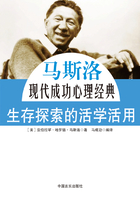PAUSE AND POWER
The true business of the literary artist is to plait or weave his meaning, involving it around itself;so that each sentence, by successive phrases, shall first come into a kind of knot, and then, after a moment of suspended meaning, solve and clear itself.
—GEORGE SAINTSBURY, on English Prose
Style, in Miscellaneous Essays.
... pause ... has a distinctive value, expressed in silence; in other words, while the voice is waiting,the music of the movement is going on ... To manage it, with its delicacies and compensations,requires that same fineness of ear on which we must depend for all faultless prose rhythm. When there is no compensation, when the pause is inadvertent ... there is a sense of jolting and lack,as if some pin or fastening had fallen out.
—JOHN FRANKLIN GENUNG, The Working Principles of Rhetoric.
P
ause, in public speech, is not mere silence—it is silence made designedly eloquent.
When a man says: "I-uh-it is with profound-ahpleasure that-er-I have been permitted to speak to you tonight and-uh-uh-I should say-er"—that is not pausing; that is stumbling. It is conceivable that a speaker may be effective in spite of stumbling—but never because of it.
On the other hand, one of the most important means of developing power in public speaking is to pause either before or after, or both before and after, an important word or phrase. No one who would be a forceful speaker can afford to neglect this principle—one of the most significant that has ever been inferred from listening to great orators. Study this potential device until you have absorbed and assimilated it.
It would seem that this principle of rhetorical pause ought to be easily grasped and applied, but a long experience in training both college men and maturer speakers has demonstrated that the device is no more readily understood by the average man when it is first explained to him than if it were spoken in Hindoostani.Perhaps this is because we do not eagerly devour the fruit of experience when it is impressively set before us on the platter of authority; we like to pluck fruit for ourselves—it not only tastes better, but we never forget that tree! Fortunately, this is no difficult task, in this instance, for the trees stand thick all about us.
One man is pleading the cause of another:
"This man, my friends, has made this wonderful sacrific—for you and me."
Did not the pause surprisingly enhance the power of this statement? See how he gathered up reserve force and impressiveness to deliver the words "for you and me." Repeat this passage without making a pause. Did it lose in effectiveness?
Naturally enough, during a premeditated pause of this kind the mind of the speaker is concentrated on the thought to which he is about to give expression.He will not dare to allow his thoughts to wander for an instant—he will rather supremely center his thought and his emotion upon the sacrifice whose service,sweetness and divinity he is enforcing by his appeal.
Concentration, then, is the big word here—no pause without it can perfectly hit the mark.
Efficient pausing accomplishes one or all of four results:
1. Pause Enables the Mind of the Speaker to Gather His Forces Before Delivering the Final Volley
It is often dangerous to rush into battle without pausing for preparation or waiting for recruits. Consider Custer's massacre as an instance.
You can light a match by holding it beneath a lens and concentrating the sun's rays. You would not expect the match to flame if you jerked the lens back and forth quickly. Pause, and the lens gathers the heat. Your thoughts will not set fire to the minds of your hearers unless you pause to gather the force that comes by a second or two of concentration. Maple trees and gas wells are rarely tapped continually; when a stronger flow is wanted, a pause is made, nature has time to gather her reserve forces, and when the tree or the well is reopened, a stronger flow is the result
Use the same common sense with your mind. If you would make a thought particularly effective, pause just before its utterance, concentrate your mind-energies,and then give it expression with renewed vigor.Carlyle was right: "Speak not, I passionately entreat thee, till thy thought has silently matured itself. Out of silence comes thy strength. Speech is silvern, Silence is golden; Speech is human, Silence is divine."
Silence has been called the father of speech. It should be. Too many of our public speeches have no fathers. They ramble along without pause or break.Like Tennyson's brook, they run on forever. Listen to little children, the policeman on the corner, the family conversation around the table, and see how many pauses they naturally use, for they are unconscious of effects. When we get before an audience, we throw most of our natural methods of expression to the wind, and strive after artificial effects. Get back to the methods of nature—and pause.
2. Pause Prepares the Mind of the Auditor to Receive Your Message
Herbert Spencer said that all the universe is in motion. So it is—and all perfect motion is rhythm. Part of rhythm is rest. Rest follows activity all through nature. Instances: day and night; spring—summer—autumn—winter; a period of rest between breaths; an instant of complete rest between heart beats. Pause,and give the attention-powers of your audience a rest.What you say after such a silence will then have a great deal more effect.
When your country cousins come to town, the noise of a passing car will awaken them, though it seldom affects a seasoned city dweller. By the continual passing of cars his attention-power has become deadened. In one who visits the city but seldom, attention-value is insistent. To him the noise comes after a long pause;hence its power. To you, dweller in the city, there is no pause; hence the low attention-value. After riding on a train several hours you will become so accustomed to its roar that it will lose its attention-value, unless the train should stop for a while and start again. If you attempt to listen to a clock-tick that is so far away that you can barely hear it, you will find that at times you are unable to distinguish it, but in a few moments the sound becomes distinct again. Your mind will pause for rest whether you desire it to do so or not.
The attention of your audience will act in quite the same way. Recognize this law and prepare for it—by pausing. Let it be repeated: the thought that follows a pause is much more dynamic than if no pause had occurred. What is said to you of a night will not have the same effect on your mind as if it had been uttered in the morning when your attention had been lately refreshed by the pause of sleep. We are told on the first page of the Bible that even the Creative Energy of God rested on the "seventh day." You may be sure,then, that the frail finite mind of your audience will likewise demand rest. Observe nature, study her laws,and obey them in your speaking.
3. Pause Creates Effective Suspense
Suspense is responsible for a great share of our interest in life; it will be the same with your speech.A play or a novel is often robbed of much of its interest if you know the plot beforehand. We like to keep guessing as to the outcome. The ability to create suspense is part of woman's power to hold the other sex. The circus acrobat employs this principle when he fails purposely in several attempts to perform a feat, and then achieves it. Even the deliberate manner in which he arranges the preliminaries increases our expectation—we like to be kept waiting. In the last act of the play, "Polly of the Circus," there is a circus scene in which a little dog turns a backward somersault on the back of a running pony. One night when he hesitated and had to be coaxed and worked with a long time before he would perform his feat he got a great deal more applause than when he did his trick at once. We not only like to wait but we appreciate what we wait for. If fish bite too readily the sport soon ceases to be a sport.
It is this same principle of suspense that holds you in a Sherlock Holmes story—you wait to see how the mystery is solved, and if it is solved too soon you throw down the tale unfinished. Wilkie Collins' receipt for fiction writing well applies to public speech:"Make 'em laugh; make 'em weep; make 'em wait."Above all else make them wait; if they will not do that you may be sure they will neither laugh nor weep.
Thus pause is a valuable instrument in the hands of a trained speaker to arouse and maintain suspense.We once heard Mr. Bryan say in a speech: "It was my privilege to hear"—and he paused, while the audience wondered for a second whom it was his privilege to hear—"the great evangelist"—and he paused again; we knew a little more about the man he had heard, but still wondered to which evangelist he referred; and then he concluded: "Dwight L. Moody." Mr. Bryan paused slightly again and continued: "I came to regard him"—here he paused again and held the audience in a brief moment of suspense as to how he had regarded Mr. Moody, then continued—"as the greatest preacher of his day." Let the dashes illustrate pauses and we have the following:
"It was my privilege to hear—the great evangelist—Dwight L. Moody.—I came to regard him—as the greatest preacher of his day."
The unskilled speaker would have rattled this off with neither pause nor suspense, and the sentences would have fallen flat upon the audience. It is precisely the application of these small things that makes much of the difference between the successful and the unsuccessful speaker.
4. Pausing After An Important Idea Gives it Time to Penetrate
Any Missouri farmer will tell you that a rain that falls too fast will run off into the creeks and do the crops but little good. A story is told of a country deacon praying for rain in this manner: "Lord, don't send us any chunk floater. Just give us a good old drizzle-drazzle." A speech, like a rain, will not do anybody much good if it comes too fast to soak in.The farmer's wife follows this same principle in doing her washing when she puts the clothes in water—and pauses for several hours that the water may soak in.The physician puts cocaine on your turbinates—and pauses to let it take hold before he removes them.Why do we use this principle everywhere except in the communication of ideas? If you have given the audience a big idea, pause for a second or two and let them turn it over. See what effect it has. After the smoke clears away you may have to fire another 14-inch shell on the same subject before you demolish the citadel of error that you are trying to destroy. Take time. Don't let your speech resemble those tourists who try "to do" New York in a day. They spend fifteen minutes looking at the masterpieces in the Metropolitan Museum of Arts, ten minutes in the Museum of Natural History, take a peep into the Aquarium, hurry across the Brooklyn Bridge, rush up to the Zoo, and back by Grant's Tomb—and call that "Seeing New York." If you hasten by your important points without pausing, your audience will have just about as adequate an idea of what you have tried to convey.
Take time, you have just as much of it as our richest multimillionaire. Your audience will wait for you. It is a sign of smallness to hurry. The great redwood trees of California had burst through the soil five hundred years before Socrates drank his cup of hemlock poison, and are only in their prime today. Nature shames us with our petty haste. Silence is one of the most eloquent things in the world. Master it, and use it through pause.
In the following selections dashes have been inserted where pauses may be used effectively. Naturally, you may omit some of these and insert others without going wrong—one speaker would interpret a passage in one way, one in another; it is largely a matter of personal preference. A dozen great actors have played Hamlet well, and yet each has played the part differently. Which comes the nearest to perfection is a question of opinion. You will succeed best by daring to follow your own course—if you are individual enough to blaze an original trail.
A moment's halt—a momentary taste of being from the well amid the waste—and lo! the phantom caravan has reached—the nothing it set out from—Oh make haste!
The worldly hope men set their hearts upon—turns ashes—or it prospers;—and anon like snow upon the desert's dusty face—lighting a little hour or two—is gone.
The bird of time has but a little way to flutter—and the bird is on the wing.
You will note that the punctuation marks have nothing to do with the pausing. You may run by a period very quickly and make a long pause where there is no kind of punctuation. Thought is greater than punctuation. It must guide you in your pauses.
A book of verses underneath the bough,—a jug of wine, a loaf of bread—and thou beside me singing in the wilderness—Oh—wilderness were paradise enow.
You must not confuse the pause for emphasis with the natural pauses that come through taking breath and phrasing. For example, note the pauses indicated in this selection from Byron:
But hush!—hark!—that deep sound breaks in once more, And nearer!—clearer!—deadlier than before. Arm, ARM!—it is—it is the cannon's opening roar!
It is not necessary to dwell at length upon these obvious distinctions. You will observe that in natural conversation our words are gathered into clusters or phrases, and we often pause to take breath between them. So in public speech, breathe naturally and do not talk until you must gasp for breath; nor until the audience is equally winded.
A serious word of caution must here be uttered:do not overwork the pause. To do so will make your speech heavy and stilted. And do not think that pause can transmute commonplace thoughts into great and dignified utterance. A grand manner combined with insignificant ideas is like harnessing a Hambletonian with an ass. You remember the farcical old school declamation, "A Midnight Murder," that proceeded in grandiose manner to a thrilling climax, and ended—"and relentlessly murdered—a mosquito!"
The pause, dramatically handled, always drew a laugh from the tolerant hearers. This is all very well in farce, but such anti-climax becomes painful when the speaker falls from the sublime to the ridiculous quite unintentionally. The pause, to be effective in some other manner than in that of the boomerang, must precede or follow a thought that is really worth while,or at least an idea whose bearing upon the rest of the speech is important.
William Pittenger relates in his volume, "Extempore Speech," an instance of the unconsciously farcical use of the pause by a really great American statesman and orator. "He had visited Niagara Falls and was to make an oration at Buffalo the same day, but, unfortunately,he sat too long over the wine after dinner. When he arose to speak, the oratorical instinct struggled with difficulties, as he declared, 'Gentlemen, I have been to look upon your mag—mag—magnificent cataract,one hundred—and forty—seven—feet high! Gentlemen,Greece and Rome in their palmiest days never had a cataract one hundred—and forty—seven—feet high!'"
QUESTIONS AND EXERCISES
1. Name four methods for destroying monotony and gaining power in speaking.
2. What are the four special effects of pause?
3. Note the pauses in a conversation, play, or speech. Were they the best that could have been used? Illustrate.
4. Read aloud selections of this chapter, paying special attention to pause.
5. Read the following without making any pauses. Reread correctly and note the difference:
Soon the night will pass; and when, of the Sentinel on the ramparts of Liberty the anxious ask: | "Watchman, what of the night?" his answer will be |"Lo, the morn appeareth."
Knowing the price we must pay, | the sacrifice | we must make, | the burdens | we must carry, | the assaults| we must endure, | knowing full well the cost, | yet we enlist, and we enlist | for the war. | For we know the justice of our cause, | and we know, too, its certain triumph.
Not reluctantly, then, | but eagerly, | not with faint hearts, | but strong, do we now advance upon the enemies of the people. | For the call that comes to us is the call that came to our fathers. | As they responded,so shall we.
"He hath sounded forth a trumpet | that shall never call retreat, He is sifting out the hearts of men | before His judgment seat. Oh, be swift | our souls to answer Him, | be jubilant our feet, Our God | is marching on."
—ALBERT J. BEVERIDGE, From his speech as temporary chairman of Progressive National Convention, Chicago, 1912.
6. Bring out the contrasting ideas in the following by using the pause:
Contrast now the circumstances of your life and mine, gently and with temper, ?schines; and then ask these people whose fortune they would each of them prefer. You taught reading, I went to school: you performed initiations, I received them: you danced in the chorus, I furnished it: you were assembly-clerk,I was a speaker: you acted third parts, I heard you:you broke down, and I hissed: you have worked as a statesman for the enemy, I for my country. I pass by the rest; but this very day I am on my probation for a crown, and am acknowledged to be innocent of all offence; while you are already judged to be a pettifogger, and the question is, whether you shall continue that trade, or at once be silenced by not getting a fifth part of the votes. A happy fortune, do you see, you have enjoyed, that you should denounce mine as miserable!
—DEMOSTHENES.
7. After careful study and practice, mark the pauses in the following:
The past rises before me like a dream. Again we are in the great struggle for national life. We hear the sounds of preparation—the music of the boisterous drums, the silver voices of heroic bugles. We see thousands of assemblages, and hear the appeals of orators; we see the pale cheeks of women and the flushed faces of men; and in those assemblages we see all the dead whose dust we have covered with flowers.We lose sight of them no more. We are with them when they enlist in the great army of freedom. We see them part from those they love. Some are walking for the last time in quiet woody places with the maiden they adore. We hear the whisperings and the sweet vows of eternal love as they lingeringly part forever.Others are bending over cradles, kissing babies that are asleep. Some are receiving the blessings of old men. Some are parting from those who hold them and press them to their hearts again and again, and say nothing; and some are talking with wives, and endeavoring with brave words spoken in the old tones to drive from their hearts the awful fear. We see them part. We see the wife standing in the door, with the babe in her arms—standing in the sunlight sobbing;at the turn of the road a hand waves—she answers by holding high in her loving hands the child. He is gone—and forever.
—ROBERT J. INGERSOLL, to the Soldiers of Indianapolis.
8. Where would you pause in the following selections? Try pausing in different places and note the effect it gives.
The moving finger writes; and having writ moves on:nor all your piety nor wit shall lure it back to cancel half a line, nor all your tears wash out a word of it.
The history of womankind is a story of abuse. For ages men beat, sold, and abused their wives and daughters like cattle. The Spartan mother that gave birth to one of her own sex disgraced herself; the girl babies were often deserted in the mountains to starve;China bound and deformed their feet; Turkey veiled their faces; America denied them equal educational advantages with men. Most of the world still refuses them the right to participate in the government and everywhere women bear the brunt of an unequal standard of morality.
But the women are on the march. They are walking upward to the sunlit plains where the thinking people rule. China has ceased binding their feet. In the shadow of the Harem Turkey has opened a school for girls. America has given the women equal educational advantages, and America, we believe, will enfranchise them.
We can do little to help and not much to hinder this great movement. The thinking people have put their O.K. upon it. It is moving forward to its goal just as surely as this old earth is swinging from the grip of winter toward the spring's blossoms and the summer's harvest.[1]
9. Read aloud the following address, paying careful attention to pause wherever the emphasis may thereby be heightened.
THE IRREPRESSIBLE CONFLICT
... At last, the Republican party has appeared. It avows, now, as the Republican party of 1800 did, in one word, its faith and its works, "Equal and exact justice to all men." Even when it first entered the field, only half organized, it struck a blow which only just failed to secure complete and triumphant victory. In this, its second campaign, it has already won advantages which render that triumph now both easy and certain. The secret of its assured success lies in that very characteristic which, in the mouth of scoffers, constitutes its great and lasting imbecility and reproach. It lies in the fact that it is a party of one idea;but that is a noble one—an idea that fills and expands all generous souls; the idea of equality of all men before human tribunals and human laws, as they all are equal before the Divine tribunal and Divine laws.
I know, and you know, that a revolution has begun.I know, and all the world knows, that revolutions never go backward. Twenty senators and a hundred representatives proclaim boldly in Congress to-day sentiments and opinions and principles of freedom which hardly so many men, even in this free State,dared to utter in their own homes twenty years ago.While the government of the United States, under the conduct of the Democratic party, has been all that time surrendering one plain and castle after another to slavery, the people of the United States have been no less steadily and perseveringly gathering together the forces with which to recover back again all the fields and all the castles which have been lost, and to confound and overthrow, by one decisive blow, the betrayers of the Constitution and freedom forever.
—W.H. SEWARD.
[1] From an editorial by D.C. in Leslie's Weekly, June 4,1914.















